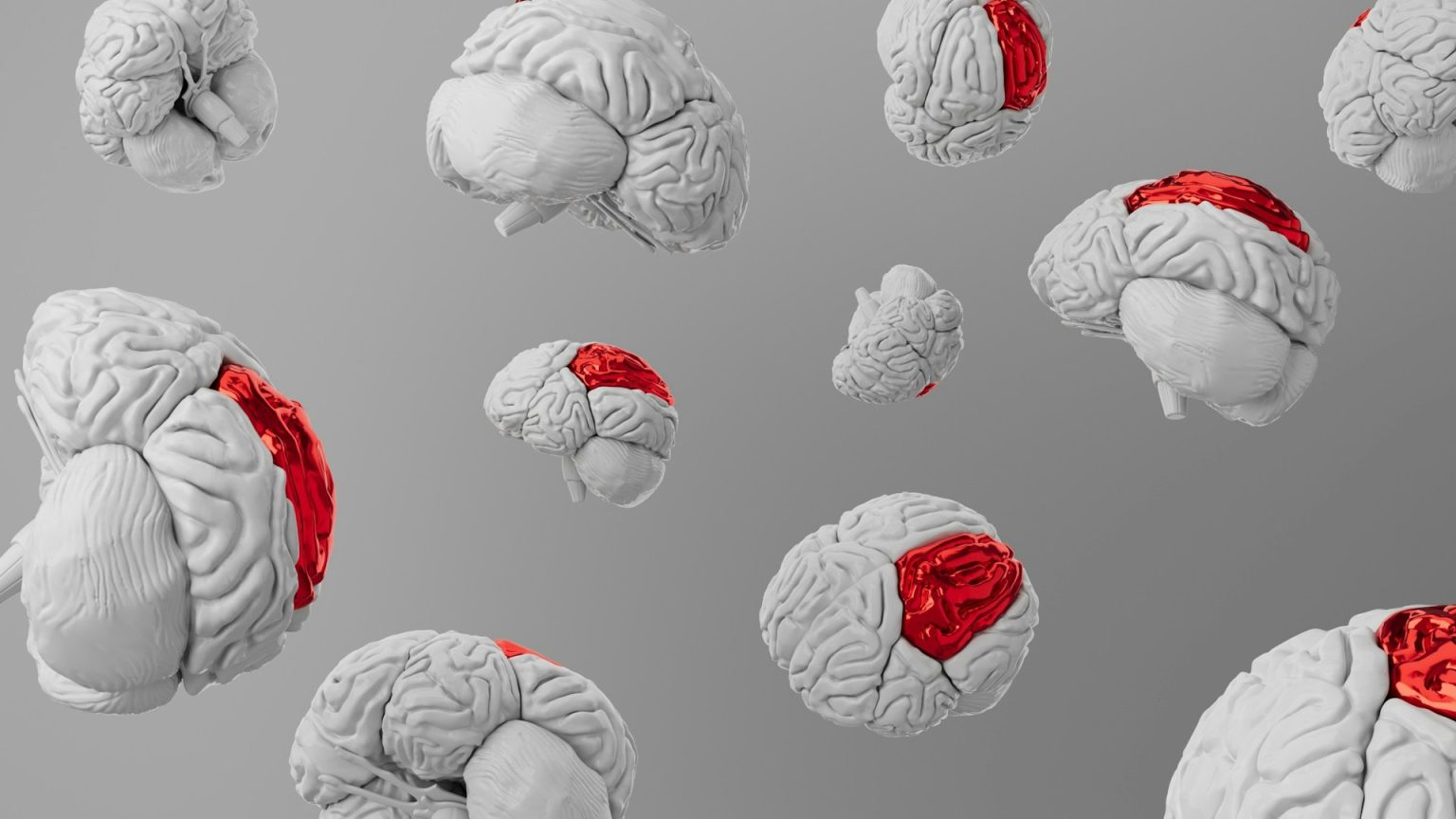Science is full of drama. One century we’re basing the treatment of ailments on the four humors, then over two thousand years later, we find out it’s actually microbes messing with our bodies. For Dr André Fenton, a professor of neural science at NYU, the evolving nature of science is a challenge he knows all too well.
In 2011 he and Todd Sacktor, professor of neurology at the SUNY Downstate Medical Center, came up with a theory that suggested a molecule called PKMzeta, altered neurons in the brain to form long-term memories. They came to this conclusion by observing the behavior of rats and mice. First, they let their test subjects loose in a small arena and let them discover that certain areas of the enclosure would deliver shocks to their bodies. They quickly learned to avoid those routes.
Then, they injected their subjects with genetic elements called ZIP that would block PKMzeta. After the injections were received, the rodents did not recall which routes shocked them, suggesting that their memories had been wiped and that PKMzeta played an important role in memory formation.
Concrete, right? Well, that’s where the drama kicks in. Some scientists questioned these findings and conducted their own experiments. Richard Huganir, the director of the department of neuroscience at the Johns Hopkins University School of Medicine, created a group of genetically engineered mice that couldn’t produce PKMzeta at all. He and his colleagues found that these rodents could produce long-term memories without the presence of PKMzeta, contradicting Fenton and Sacktor’s theory. Furthermore, when they injected them with ZIP their memories were erased, suggesting another molecule could be responsible for making memories since PKMzeta wasn’t present.
End of drama? Not a chance. Despite these contradictory findings, Fenton and Sacktor continued their research and found that another molecule, PKC-iota-lambda (iota for short), was very similar to the structure of PKMzeta. But instead of originating in the brain, it’s found all over the body and is used by cells to move proteins. In their initial research, they did record that iota was present in the early stages of memory formation in rodents but that it quickly disappeared. Since their theory was being disputed, they dug further into iota and found that there were high levels present in the animals where PKMzeta was blocked.
Following this discovery, they gave the PKMzeta-depleted mice a dose of a chemical that stopped iota from forming and found that they couldn’t pass their memory tests. The theory was that iota continued to grow in the neurons due to the lack of PKMzeta, taking on the role of memory formation. They then tested these two molecules against each other and found that iota wasn’t nearly as strong as PKMzeta when it came to animals performing complex memory tasks.
It’s this in-depth work and innovative thinking that led us to interview Fenton about the precarious nature of memories in humans (whose brains share many similarities with other mammals). If you thought mice brains were complex, you might want to strap yourself in for what’s going on in your head.
“I can’t trust my memory,” says Fenton, who is especially interested in the hippocampus and how it controls the ways we choose relevant information to process. “When we experience the world, we are using our brains, and the brain is a self-organizing system. Through its own use, it gets modified, so we’re not simply reproducing what it is that we have experienced – we’re reconstructing. We are building a new experience, and we tend to build those experiences according to the stories that make sense to our minds.”
In the human brain, there are approximately 100 billion neurons, all with varying abilities to communicate with the neurons they are connected to. These connective synapses usually grow stronger through continued use and weaken when they’re used rarely. “The strengthening and the weakening of those synapses is an active biochemical process that makes those adjustments,” Fenton says. “And when those adjustments persist, that’s what we call memory.”
And when these memories continue across different categories of information, that’s what we call a mindset – something that Fenton explains is integral to how we engage with and remember our environment.
“Cognitive psychologists knew long ago that mindset was crucial to not only how we perceive the world, but how we remember things from the world,” he says. “We can all experience what would appear to be the same thing. Look down the street. Everyone will focus their attention on different aspects of what’s available for them to recollect. Naturally, we can have a different recording of these events. So when we retell these stories, we reconstruct those events from fragments of our memory and build stories around our mindset.”
So how do we find truth and honesty in a world where we all interpret events differently? Fenton advises we all accept our shortcomings and keep an open mind.
“Recognize that we all have a distorted perception and that later we will have a distorted understanding and recollection of the perception called memory,” he says. “If you fundamentally believe that, it demands you act in the world with a certain sense of humility and empathy for others. When new evidence or a new point of view appears, be ready to consider it.”
We spoke to André Fenton for The Science of Perception Box, a Big Think interview series created in partnership with Unlikely Collaborators. As a creative non-profit organization, they’re on a mission to help people challenge their perceptions and expand their thinking. This series dives into the science behind our thought patterns. Watch André Fenton’s full interview above, and visit Perception Box to see more in this series.
Words: Jamie Carson
ANDRÉ FENTON: It's a really intriguing question to ponder, you know, how does time and space affect memory? And in fact, the converse, how memory affects our perceptions of time and space.
The representations that we build of time and space in the brain form a framework in which we experience the world so that we can collect from the experiences, the memories that we keep. And at the very same time, those memories that we keep, they're modifying, they're changing the very substance of that framework so that in the future, our next experiences are predicated on that modified framework.
And so there's a deep interaction, a fundamental interaction between what our past experience is and how we approach the world to collect new experiences that we turn into memories. One of the things that I feel really privileged for studying neuroscience and in particular memory is that I have an insight into my memory to recognize that I can't fully trust it.
I will not argue on the basis of my memory for some set of events happening one way or another. And so if you now grab a bunch of people and you allow those people to have deep beliefs that their memories are knowable and true, those people will interact very differently than another set of people who actually recognize that their memories are not likely to be a good representation of what actually happened- or even what you're currently perceiving.
So in a human brain, there's just under 100 billion neurons. One neuron is better or worse able to communicate with the neuron that it's connected to or one of the 10,000 that it's connected to. And those synapses tend to strengthen when they're used repeatedly and effectively. And when they're not used repeatedly or when they're used rarely or when they're used in a mistimed manner, then those synapses tend to weaken.
And the strengthening and the weakening of those synapses is an active biochemical process that makes those adjustments. And when those adjustments persist, And when those memories persist across different classes of information and across different brain areas,
Cognitive psychologists knew very long ago that mindset was really crucial to how we not only perceive the world but even how we remember things from the world. So I'll give you a concrete example: Endel Tulving proposes what he calls an When you remember something, there's actually an interaction of three crucial things: What you know, the mindset you come to try to remember from, and the cues that are used for the recollection. And so those three are fundamentally and intimately intertwined. You can't recollect one without the other in a sense.
So the fundamental fact is that when we experience the world, when we have thoughts, we are using our brains. And the brain is a self-organizing system. Through its own use, it gets modified. We're not simply reproducing what it is that we had experienced. We're reconstructing, we are building a new experience. And we tend to build those experiences according to the stories that make sense to our minds.
Even at the level of perception, we can all experience what would appear to be the same thing. For example, look out the window or look down the street. Everyone will focus their attention on different aspects of what's available for them to recollect. And so naturally, we even have a different recording of the actual events.
Then when we retell these stories and recount them, we reconstruct those events from what we remember from the fragments of our memory and we build stories around our mindset- and the stories are triggered by, of course, the cues that we're using to retell those stories.
So at the end of the day, many of us and many of the things that we engage in seek to come to an understanding of what I would call "truth," something that we can all agree on and recognize as being meaningful and honest and universal. And so how do you accomplish that? Well, by recognizing that we all have access to that truth, that we all have a distorted perception and we will have later a distorted understanding and recollection of the perception called memory.
And if you fundamentally believe that, it demands that you act in the world with a certain sense of humility and empathy for others. If you are open to listening, if you're open to self-correction, and of course, you should be because you know that you can't know.
So when new evidence appears, when a new point of view appears, by being ready to consider it, by being mindful of what is available to understand, we have a chance at least to converge not on what I think is right or what you think is right, but what actually might be true.






